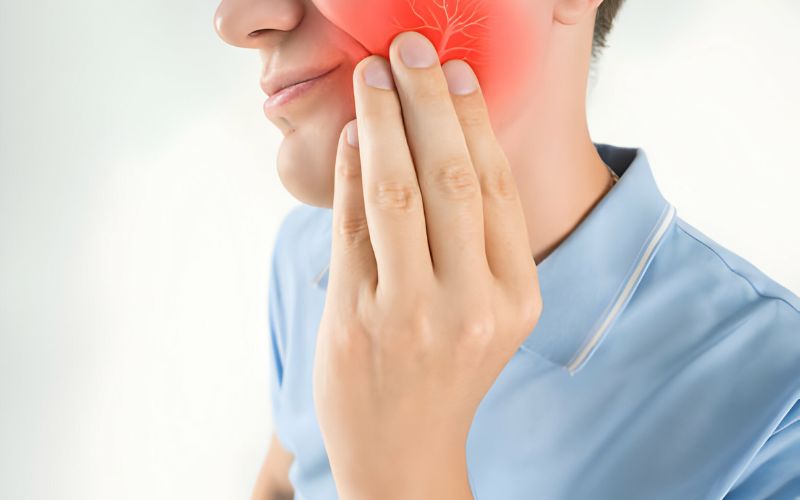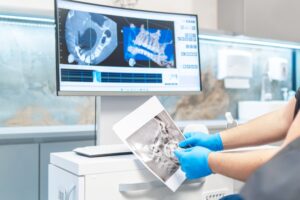Wisdom teeth removal might seem like a daunting experience, but it’s a common procedure that many of us will go through. The key to a smooth and swift recovery lies in how well we care for our mouths afterward. One of the most frequent questions patients ask is, “When can I brush my teeth after wisdom teeth removal?” This blog aims to provide a comprehensive answer, ensuring your post-operative care is as effective and comfortable as possible.
How Soon Can You Brush After Wisdom Teeth Removal?
Discover the optimal timing for brushing your teeth following wisdom teeth extraction, and learn essential care tips for a healthy recovery.
Get Expert’s AdviceUnderstanding Wisdom Teeth Removal

Why Wisdom Teeth Are Removed
Wisdom teeth, or third molars, are the last set of teeth to emerge, usually between the late teens and early twenties. Often, they’re removed because they’re impacted (not fully erupted through the gums), causing pain, potential damage to adjacent teeth, or other dental problems. In some cases, individuals may opt for porcelain veneers to address cosmetic concerns or imperfections in their teeth, but when it comes to impacted wisdom teeth, extraction is typically the recommended course of action to ensure optimal oral health.
The Removal Procedure
The procedure involves either a simple extraction or a more complex surgical approach, depending on how the wisdom teeth have grown. Post-surgery care is crucial to prevent complications and promote healing.
Immediate Aftercare Following Wisdom Teeth Removal
The first 24 hours after your root canal procedure are crucial. It’s advised to avoid any activities that could disrupt the healing process, such as brushing near the extraction site, spitting forcefully, or using a straw, as these actions can dislodge the blood clot forming in the socket.
When to Resume Brushing Teeth After Wisdom Teeth Removal

First 24-72 Hours
Initially, it’s essential to avoid brushing the extraction site to allow the formation of a blood clot, which is pivotal in the healing process. However, maintaining oral hygiene is still crucial. Here’s how to approach it:
- Day of Surgery: Focus on rest and avoid brushing.
- Day After Surgery: Gently brush your teeth, avoiding the surgery sites, using a soft-bristled toothbrush.
Oral Hygiene Practices After Wisdom Teeth Removal
Maintaining a clean mouth after surgery is crucial for preventing infection and promoting healing. Here are some tailored tips:
- Saltwater Rinses: After the first 24 hours, gently rinse your mouth with warm salt water several times a day, especially after eating, to keep the area clean.
- Soft-Bristled Toothbrush: Use this to prevent irritation to the gums and extraction sites.
Foods to Eat and Avoid After Wisdom Teeth Removal
Soft Foods Are Your Best Friend
In the days following your surgery, it’s important to stick to soft foods and liquids to avoid putting pressure on the extraction sites. Think along the lines of soothing soups, creamy yogurts, and refreshing smoothies. And remember, if you have any concerns or questions about your recovery, don’t hesitate to reach out to your cosmetic dentist for guidance and support.
Foods to Avoid
Steer clear of hard, crunchy, or sticky foods that could irritate the wound or get lodged in the site, potentially leading to infection.
Potential Complications and How to Address Them
Common Complications
- Dry Socket: A painful condition that can occur if the blood clot at the extraction site is dislodged.
- Infection: Signaled by increased pain, swelling, or a foul taste, requiring prompt medical attention.
Preventive Measures
Follow all post-surgery instructions provided by your dentist or oral surgeon, and attend follow-up appointments to ensure everything is healing as it should.
Learn About: How Long Does Wisdom Teeth Surgery Take
FAQS
Can I Use Mouthwash After Wisdom Teeth Removal?
It’s best to avoid alcohol-based mouthwashes immediately after surgery. Your dentist may recommend a saltwater rinse or a gentle mouthwash designed for post-surgical care.
What If I Accidentally Brush the Extraction Site?
If this happens, don’t panic. Just avoid further brushing of the area and monitor for any signs of increased pain or bleeding. Contact your dentist if you’re concerned.
How Long Should I Wait Before Eating Solid Foods?
Gradually reintroduce solid foods into your diet as your comfort allows, usually starting about a week after the procedure.
Can I Exercise After Wisdom Teeth Removal?
Wait at least a few days to a week before resuming any strenuous activities to avoid dislodging the blood clot in the socket.
Conclusion
Recovering from wisdom teeth removal requires patience and meticulous care, especially when it comes to oral hygiene. By following the guidelines outlined in this blog, you can ensure a smoother and faster recovery process, getting back to your regular routine with a healthy mouth. Remember, when in doubt, always consult your dentist or oral surgeon for personalized advice.


